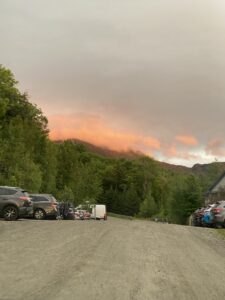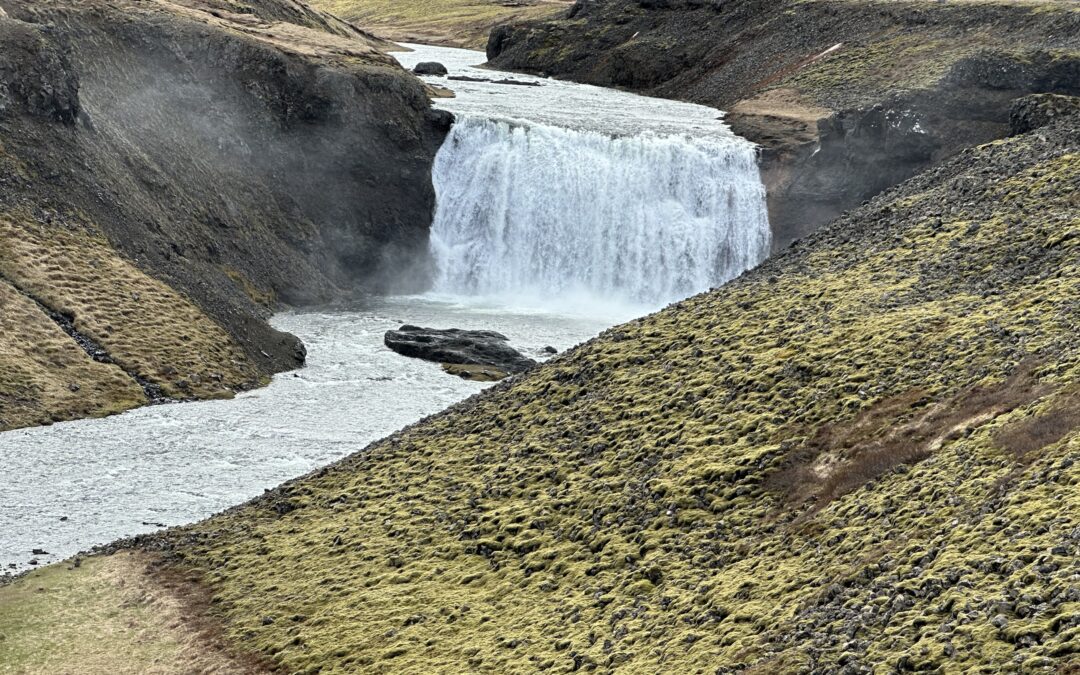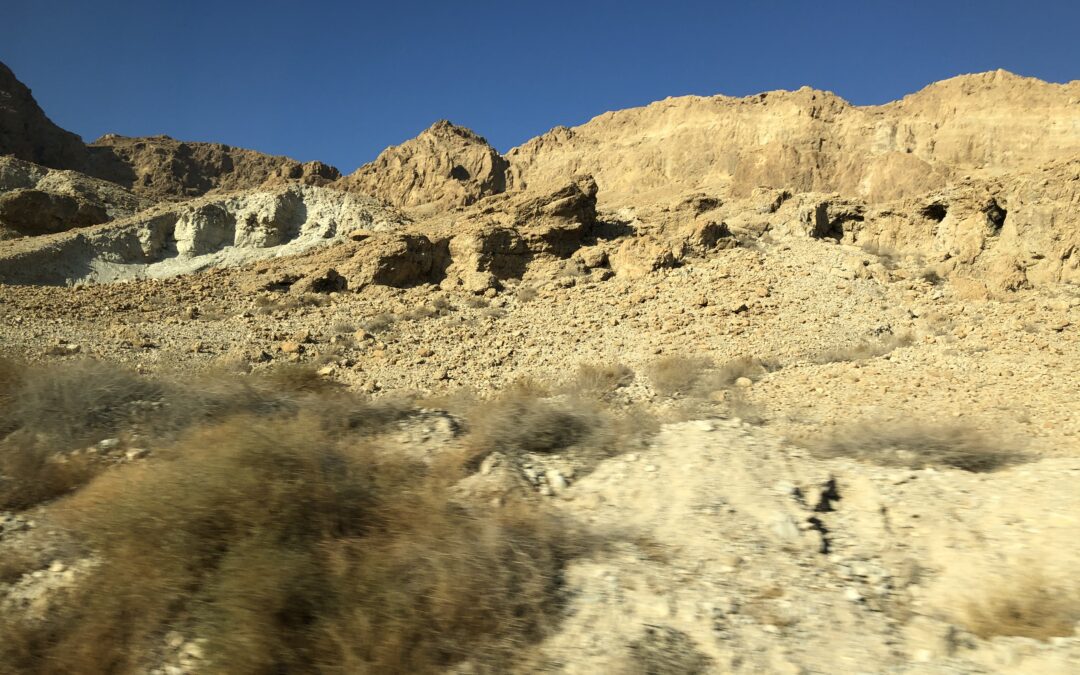Yom Kippur 5783
Like many of the quotes and poems that make their way into use, a poem attributed to an anonymous person in a concentration camp, or in hiding, became somewhat of an urban legend, and has often been taken out of context, as well as not accurately translated. That poem begins, “I believe in the sun, even when it isn’t shining.”
Looking at the original text of our sacred writings, our prayers and other literature, at least the “original text” that was handed down, is extremely important to me, and I talk about that in my classes and in other contexts. Hebrew can be beautifully nuanced, and the same word can be translated into English to express different thoughts or emotions, and to have different–often opposite–meanings, and to bring us closer to the text, or distance us.
For example, the Hebrew word, yirah, which can mean fear, awe and reverence. Does yirat ado-nai mean that we should fear–be afraid of–God? Is that what our Creator wants? I don’t think so. That said, these are the yamim nora-im, “the days of Awe,” and the root is the same. I’ve never heard yamim noraim translated any other way.
However, as a child, I definitely felt some fear on Yom Kippur when I thought about the concept of “who shall live and who shall die.” I wasn’t worried for myself, but for my grandparents–and now that I’m thinking about it–they were only in their 60s, but that’s ancient to a 10-year old! I still hadn’t quite wrapped my head around the idea of death, but I knew it meant that person would no longer physically be in my life.
We are living in very difficult and trying times, and it can be hard to be optimistic and have hope for the future when it appears that the world is going to hell in a handbasket, another saying for which there are many possible origins. For the first time since 2019, we’re holding services here in our synagogue for the High Holy Days, but the realities of Covid and its variants and increased concern for physical safety have limited our in-person participation. On the other hand, the need to embrace and utilize technology has allowed us to expand our reach and welcome friends from Florida, Virginia, Maine, Connecticut, and other locations as part of our congregation. I do wish I’d had the foresight in 2019 to buy stock in Zoom!
Here we are, a war is going on in Ukraine, a world-wide refugee crisis has displaced more than 100 thousand people, millions have died from Covid. Monkey pox and the spotted lantern fly have reached our area and gun violence is at an all-time high. The overturning of Roe vs. Wade has spotlighted healthcare injustice in our country, and in many states, turned women of child-bearing age, and the medical professionals who care for them, into potential criminals.
As Jews, we should be very concerned about what’s going on in the world and realize–and accept the fact–that we’re not immune, whether to illness, natural disaster, evil perpetrated by others, our own actions, or the luck of the draw. And yes, luck, because stuff happens despite our best efforts.
Roman Catholic theology enumerates seven deadly sins; pride, greed, wrath, envy, lust, gluttony and laziness. According to Encyclopedia Britannica, they can be thought of as dispositions, or thoughts and actions, toward sin and separation from God. For example, lust could result in adultery, which is a mortal sin. They contrast to the seven virtues of humility, charity, chastity, gratitude, temperance, patience, and diligence, all things we as humans should strive to embody.
What’s fascinating to me is that all seven of these sins can all be forgiven, but one–some call it the 8th deadly sin–can never be forgiven, and that is the sin of despair. I questioned some of my Catholic friends about this, and one friend, Beth, said “Despair is not an option, we are not promised that there will be no hardships in this life, only that we are not alone in it. That’s what gives me hope.”
Despair, according to the Oxford Dictionary, is “the complete loss of hope,” and by extension, one who despairs is one who has lost all hope of anything positive in the present or the future.
There are no guarantees that life will be easy, or fair, or that things will go our way, or that the future will be any better than the past, but perhaps what’s worse than despair itself is the way that the one who is despairing spreads hopelessness.
Apropos of Yom Kippur, the incident in parshat Shelach Lecha, comes to mind. In this reading, God told Moses to send 12 men to scout out the Promised Land and bring back a report, along with some of the land’s produce. They do. The Torah tells us, “We came to the land you sent us to; it does indeed flow with milk and honey, and this is its fruit. However, the people who inhabit the country are powerful, and the cities are fortified and very large… We cannot attack that people, for it is stronger than we.” They continued spreading negativity among the Israelites, saying, “The country that we traversed and scouted is one that devours its settlers. All the people that we saw in it are men of great size; we looked like grasshoppers to ourselves, and so we must have looked to them.”
And what happened? The Israelites began to kvetch and cry and complain and said to each other, “Let us appoint a leader to take us back to Egypt.” Well, if it weren’t for Moses and Aaron falling on their faces–and their previous experience with the Golden Calf–we wouldn’t be sitting here in synagogue today; we’d be worshipping the Egyptian Sun god, and cats. Ok, I’m good with cats.
Despair and negativity, along with a lack of belief and faith in God, caused the Israelites to spend 40 years in the wilderness, until the generation that left Egypt died out, and their children–whom they insisted would be carried off by their enemies–would be the ones to inherit the land.
As an attempt to instill a sense of hope in the Israelites, Joshua and Caleb tried to explain to the people that while what the others had said was true–the people were rather large, and the cities were fortified–that God would be with them, and they would be victorious. Of course, no one listened; they were too busy wallowing in their misery and despair.
This brings up an interesting question: When times are difficult, is God with us? Does God get involved in our lives and in the world, and smooth our path like the snowplow in front of us on the road?
I’m not even going to attempt to answer that, because rationalists in the room would tell me God doesn’t behave that way, and the theists would disagree, and probably most of us would be somewhere in the middle shrugging our shoulders. Einstein said that “coincidence is God’s way of remaining anonymous,” and he certainly wasn’t one to be swayed by non-objective evidence.
God isn’t Superman, faster than speeding bullet and presumably able to stop one, or more powerful than locomotive. Not sure about the ability to leap tall buildings in a single bound, however. But I believe God has plenty of other superpowers, and the fact that humanity still exists is one of them. Getting back to the story of the 12 spies that I mentioned earlier, it is only because of the Holy Blessed One’s forbearance and ability to forgive that we and the world survive.
This is especially important today, on Yom Kippur, because some of today’s liturgy comes directly from this story, and from the incident of the Golden Calf. Once order had been restored, Moses asked to see God, to know that God was with him. God placed Moses in the cleft of a rock, and told Moses he would only be able to see God’s back. As the Holy One’s kavod–presence–passed before Moses, God proclaimed Divine mercy and compassion, what we’ve come to know as the shlosh esrei middot, or the 13 attributes of God, which we say on Yom Kippur and other fast days. The Talmud, in tractate Rosh Hashanah, teaches, “The Holy Blessed One wrapped himself like a prayer leader and showed Moses the order of the prayer, and said to him: ‘Whenever the Israelites sin Let the prayer leader wrap himself in a prayer shawl and publicly recite the 13 attributes of mercy, and I will forgive them.’”
I can’t say for sure that Moses wore a tallit, but after this incident with the m’raglim, the scouts, God again threatened to destroy the people over the sin of their despair and their lack of trust and faith. Moses invoked these very words, calling God compassionate, merciful and slow to anger, etc., to which God replied, salachti kidvarecha, “I have forgiven according to your word.”
We, the Jewish people and humanity as a whole, are still here because God continues to forgive us for our sins against God, including the sin of despair, although God can’t, and won’t forgive us for the chet, the “missing the mark,” when it comes to our fellow humans, and the world as a whole.
Here, I’m not talking about things like accidentally walking out of the grocery store with something in your cart you forgot to pay for, or even for behaving poorly towards another person, or squishing a spotted lantern fly.
What I’m speaking about is indifference, which the late Elie Wiesel said is the opposite of love. At least the Israelites wandering in the wilderness, with all their kvetching, weren’t indifferent. They had strong feelings, of fear and awe, concern and caring, bewilderment at times to be sure. They railed against God and Moses, but when donations of goods and labor were needed for the building of the Mishkan, they stepped up and went above and beyond. They alternated between faith and insecurity, and they made their opinions known.
Now, as then, we live in a world where things don’t always make sense, and sometimes I have a hard time wrapping my head around things that seem like they should be so simple. For example, I can understand that there will always be people who do terrible things, like walk into an elementary school and open fire. This December marks 10 years since this tragedy happened at Sandy Hook Elementary School, and while mass shootings like this make up a very small percentage of deaths by gunshots, it still boggles my mind that our elected officials can’t put aside their political differences and enact responsible gun laws. It shouldn’t be easier to purchase a gun than a used car, and it certainly shouldn’t be easier for someone to acquire a gun than it is for a woman and her doctor to terminate a pregnancy.
Life isn’t black and white, and very often it takes months, years and even decades to see the consequences of our individual and collective actions. However, it doesn’t mean we don’t try.
The Babylonian Talmud, in tractate Ta-anit, which deals with fast days, tells the story of Honi the Circle Maker, a wise man who could at times, be perplexed. One day, Honi was walking on the road and saw a man planting a carob tree. He asked the man, “How long will it take for this tree to bear fruit?” The man replied, “Seventy years.” Honi then asked, “And do you think you will live another 70 years and eat the fruit of this tree?” The man answered, “Perhaps not. However, when I was born into this world, I found many carob trees planted by my father and grandfather. Just as they planted trees for me, I am planting trees for my children and grandchildren so they will be able to eat the fruit of these trees.”
The seeds we plant today will impact our world for years and generations to come. The question is, what kinds of seeds will we be planting? Will we sow seeds of doubt and despair, or plant gardens of hope? Which of these plants will we water and fertilize, and which will we allow to fend for themselves, hoping they’ll come out okay?
Fifty years ago, I was in the environment club at school. We held recycling drives, refused to use paper bags and straws, and lamented air and water pollution. Those plastic grocery bags we heralded back then as an improvement have now been banned in favor of reusable ones, or ironically, paper, and the jury is out about the whole straws thing. Many of my baby boomer generation feel that we’re still fighting the same battles, and in some cases we are. But on the other hand, Ohio’s Cayuhoga River, which became famous for catching fire in 1969, has made a tremendous comeback because of a concern for the environment and significant efforts to reduce pollution.
When I work with someone in the capacity of a chaplain or spiritual counselor, I often ask them to think about a time in their lives when they faced a similar challenge to what they’re facing now, and to think about how they handled it. What, or who, helped you get through? What inner resources did you call upon, and how might that help you with this challenge? Sometimes, just remembering that we’ve lived through major challenges and trying times, and are still here, is all we need to begin to have hope for the future.
But sometimes, we need more. Sometimes, I believe, we need God, we need to believe in an entity that perhaps isn’t in control of what happens, that doesn’t fix things that go wrong, but that transcends time and space to help us find the strength and support we need to go on. If you’re a devout person in any faith, you might be absolutely sure that, as some say, “Hashem is in control,” and if you’re more of a rationalist, you might disagree. Strongly. As my friend Lauren put it when I asked this question on Facebook, “One of Hashem’s attributes is Mercy, and we are created in Hashem’s image. What gives me hope is that programmed into Hashem’s world is free will for humans, so that every one of us can choose to make merciful choices.” She also mentioned something about yarn, but I digress.
For others, hope comes from the knowledge that new generations are being born, and that young people are taking up the mantle and working to make the world a better place.
When I thought about what gives me hope for the future, the first thing that popped into my mind was the beginning of a poem, “I believe in the sun, even when it isn’t shining.” I knew there was more to it, and thought it might be holocaust-related, so I went to trusty Rabbi Google to find out what I could, and that brings me to how I began this sermon, how words have different meanings, and how those different interpretations can change our experience of the text.
This anonymous poem begins, “Ich glaube an die Sonne, sei es auch dunkel.” It’s usually translated as, “I believe in the sun even when it is not shining.” However, a more literal, and perhaps more accurate translation is “I believe in the sun, though it be dark.” Attributed to someone who spent months, perhaps years, hiding in the darkness, underground, this is an amazing statement of faith, not a statement of a scientific fact. We all understand that for a portion of time every day, depending on the time of year, the sun isn’t shining where we live. However, for the person who wrote this and their compatriots, the sun was shining, but all they experienced was darkness. In their minds, however, they had the hope that eventually they would emerge from their dark place and be able to count on the sun.
On Yom Kippur, we have a choice. We can see our fasting and the confessionals as a burden, counting the pages left in the machzor and the hours left until the shofar blows, and spend the day in sadness. Or, we can acknowledge our physical and spiritual hunger, count the pages and the hours, and know that each one brings us closer to the shofar blowing, and the knowledge that we get to begin this new year with hope for a better future, personally and collectively.
I want to leave you with the first three lines of this poem, as it was printed in the Swiss newspaper Neue Zürcher Nachrichten on June 26, 1945, through a “special correspondence” from an unnamed reporter writing from Cologne, Germany:
Ich glaube an die Sonne, sei es auch dunkel,
ich glaube an Gott, mag er auch schweigen,
ich glaube an Nächstenliebe, obwohl sie sich nirgends zeigen darf“
And the best translation I’ve found, “I believe in the sun, though it be dark; I believe in God, though He be silent; I believe in charity–or neighborly love–though it be unable to–or must not–reveal itself.”
As we continue to pray this afternoon and into this evening, as we share our heartfelt hopes, dreams and concerns with God, may we be blessed to feel the Divine presence in our hearts, in our lives, and in this makom kadosh, this holy space.











0 Comments